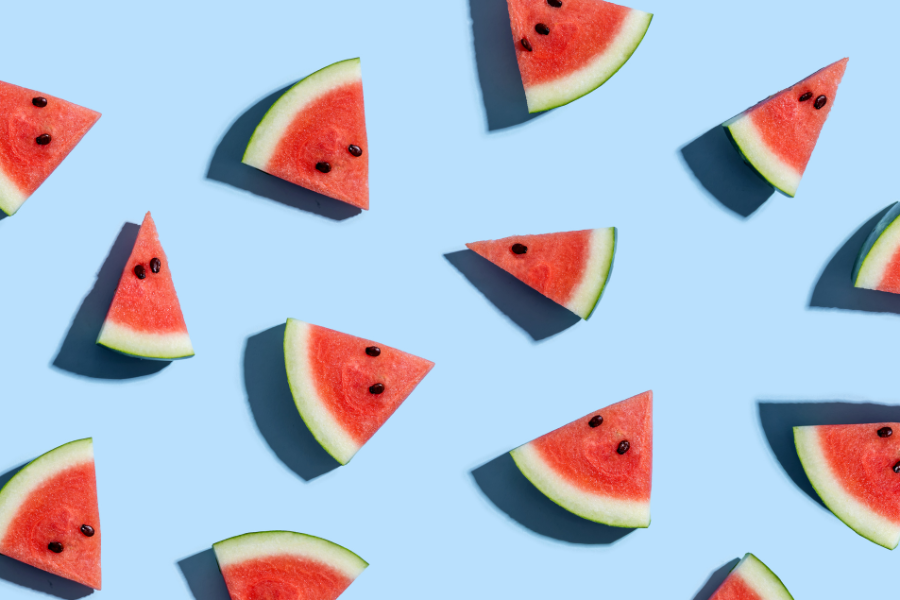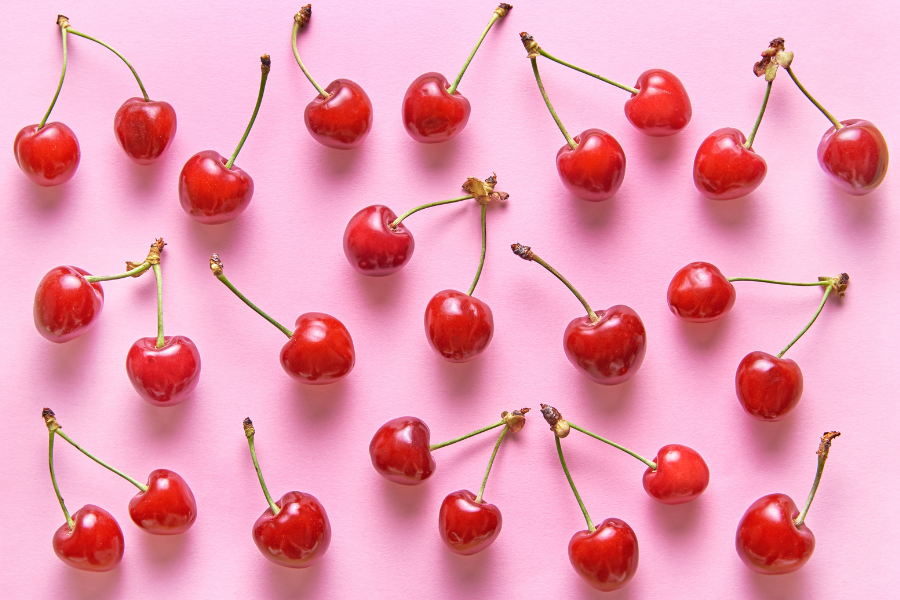Introduction
It's mid summer at the time of me writing this blog, so like me, you are probably soaking up the sun with friends and family, and munching on some watermelon. And if you have a four-legged companion, you have probably also wondered whether they too can indulge in this sweet, refreshing, summertime fruit. It is only natural that we want to share the juicy goodness of a watermelon with our pups. But is watermelon safe for dogs to have? And if so, how much is okay? Well, you're in the right spot (or should we say, you're eon the right page), because in this blog we are going to explore the answers to these questions and much more. Let's dig in!
Why Watermelon Is a Popular Treat
A Summer Staple
Watermelon and summer just go together, it is as simple as that. It's a perfect summertime treat, plus it helps us to stay cool and hydrated on those hot summer afternoons. Did we mention it's delicious? That too.
Nutrient-Rich Goodness
But watermelon isn't just tasty; it's also packed with nutrients. Rich in vitamins A, B6, and C, as well as antioxidants like lycopene, this fruit offers a host of health benefits. It's low in calories and fat, making it a guilt-free indulgence.
Is Watermelon Safe for Dogs?
Generally Yes
Let's start with the good news. Watermelon is typically safe for dogs to have. There are some precautions you should take before you start throwing huge watermelon chunks to your dog, however.
Avoid the Seeds
The main concern with feeding watermelons to dogs are the seeds, which can lead to intestinal blockages (especially small dogs). So, removing all seeds before feeding watermelon to your dog is imperative.
Watch Out for the Rind
Another risk of feeding watermelon to dogs is the rind (the tough outer skin). The rind can be difficult for dogs to digest, and easily cause digestive upset. Removing the rind is also highly recommended.
Health Benefits of Watermelon for Dogs
Hydration Hero
You know how they say a tree if 90% air? (I don't actually know if that's true). Well, watermelon is actually (about) 92% water. Like, it's mostly water! Which is amazing to think about, and it makes it clear why watermelon is such a great fruit to help keep you and your dog hydrated!
Packed with Vitamins
Watermelon is nutrient rich. Not only is it chock-full of vitamins like B6, A and C, but watermelon also contains phytonutrients like lycopene and l-citrulline. Combined, the nutrients found in watermelon can support numerous bodily functions and benefit health.
Potential Risks of Feeding Watermelon to Dogs
Seed Concerns
While watermelon seeds are not toxic, they can pose a choking hazard or cause intestinal blockage if ingested in large quantities. Always remove the seeds before giving watermelon to your dog.
Digestive Upset
Feeding your dog too much watermelon at once can lead to digestive issues such as diarrhea or stomach upset. Moderation is key to ensuring your dog enjoys the treat without any negative side effects.
Allergic Reactions
Although rare, some dogs may be allergic to watermelon. If it's your dog's first time trying it, start with a small amount and monitor for any signs of an allergic reaction, such as itching, swelling, or difficulty breathing.
How to Safely Serve Watermelon to Your Dog
Seedless Slices
As we have touched on, serving watermelon seedless and rind-less is the way to go. Removing the seeds and the rind make watermelon a much safer treat for your pup to eat.
Frozen Treats
Ooh boy do we love this one. If you have not tried it, you should ASAP! Freeze some small chunks of watermelon and serve them to your pup (and to yourself) for an ultra-cool, ultra-refreshing summertime treat. (Hint - if your dog loves ice, they will love this).
What to Do If Your Dog Eats Watermelon Seeds or Rind
Monitor for Signs
First off, even though it might be tempting to, don't panic. If your dog accidentally consumes watermelon seeds or rind, monitor them closely for any signs of distress. Watch for symptoms such as vomiting, decreased appetite, lethargy, or abdominal discomfort.
Contact Your Vet
If you notice any concerning symptoms or if your dog has ingested a significant amount of seeds or rind, contact your veterinarian for advice. They can provide guidance on whether any further action is needed.
Prevent Future Incidents
To prevent future incidents, always supervise your dog when they're enjoying watermelon. Make sure to remove all seeds and rind before offering it to them.
Alternatives to Watermelon for Dogs
Other Dog-Friendly Fruits
If your dog is down with watermelon, they'll probably love other fruits too. For more variety, try some other dog friendly fruits like blueberries and strawberries.
Homemade Dog Treats
Even if you're not Gordon Ramsay, there are plenty of easy dog treat recipes you can try (a quick google search will give you plenty of options). Try incorporating ingredients like carrot, peanut butter, almond butter, or sweet potato.
Building a Balanced Diet for Your Dog
Variety is Key
Variety is the spice of life, right? Even though your dog won't eat the variety of food you do, it is a good idea to make sure your dog's diet has some variety and some balance. While watermelon can be a tasty and healthy treat, it's important to ensure your dog's diet is balanced and varied. A well-rounded diet includes a mix of protein, fats, carbohydrates, vitamins, and minerals.
Touch Base with Your Vet
Many dogs have food sensitivities and require tailored diets. So before you throw any new foods into the mix, touch base with your vet so they can give your pup personalized recommendations.
Encouraging Healthy Eating Habits
Portion Control
Even healthy treats like watermelon should be given in moderation. Practice portion control to avoid overfeeding and to maintain your dog's balanced diet.
Positive Reinforcement
Use treats like watermelon as a reward for good behavior or during training sessions. Positive reinforcement helps reinforce desirable behaviors and strengthens your bond with your dog.
Consistent Routine
Establish a consistent feeding routine for your dog. This includes regular meal times and designated treat times. Consistency helps your dog know what to expect and can reduce begging or food-related anxiety.
Conclusion
To summer-ize (get it?), watermelon is tasty, refreshing, and has numerous health benefits. When served in moderation, and without rind or seeds, watermelon can be a safe treat to share with your dog on those sweltering summer days (like today). By incorporating watermelon into your dog's diet, you can provide them with a refreshing and nutritious snack that they will love.
FAQ
How Much Watermelon Can I Give My Dog?
Alright, let's get to the question you really want to know...how much watermelon can you actually give your dog? This may not be the answer you're looking for, but moderation is your best friend here. A good rule of thumb is to not exceed 10% of their total diet with treats. And we are counting watermelon as a treat, especially because it contains a fair amount of sugar. Just don't replace their regular food with watermelon, capisce?
Why Do Dogs Love Watermelon?
Dogs love watermelon for all the reasons you love it! Not a huge mystery here. Watermelon is delicious. Plus, a lot of dogs like the crunch and texture of watermelon.
Do Dogs Fully Digest Watermelon?
Most dogs can digest the fruit (the flesh) of a watermelon, however they can have issues digesting both the seeds and the rind of a watermelon. Eating the seeds or the rind for a dog can lead to anything from minor digestive issues to intestinal blockages (not so minor).
References
1) Gizzarelli M, Calabrò S, Vastolo A, Molinaro G, Balestrino I, Cutrignelli MI. Clinical Findings in Healthy Dogs Fed With Diets Characterized by Different Carbohydrates Sources. Front Vet Sci. 2021 Apr 22;8:667318. doi: 10.3389/fvets.2021.667318. PMID: 33969043; PMCID: PMC8100497.
2) Manivannan A, Lee ES, Han K, Lee HE, Kim DS. Versatile Nutraceutical Potentials of Watermelon-A Modest Fruit Loaded with Pharmaceutically Valuable Phytochemicals. Molecules. 2020 Nov 11;25(22):5258. doi: 10.3390/molecules25225258. PMID: 33187365; PMCID: PMC7698065.



